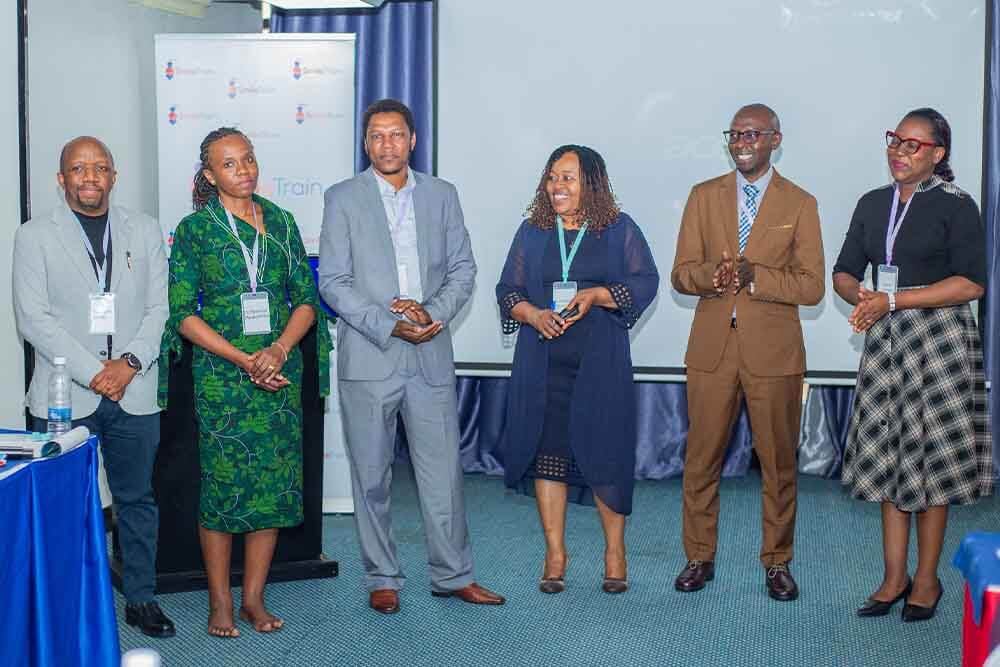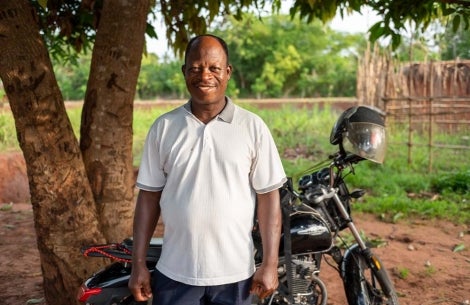The Power of Local Partnerships: A Case Study in Cleft Care Advocacy
How Smile Train empowers professionals and fosters collaboration
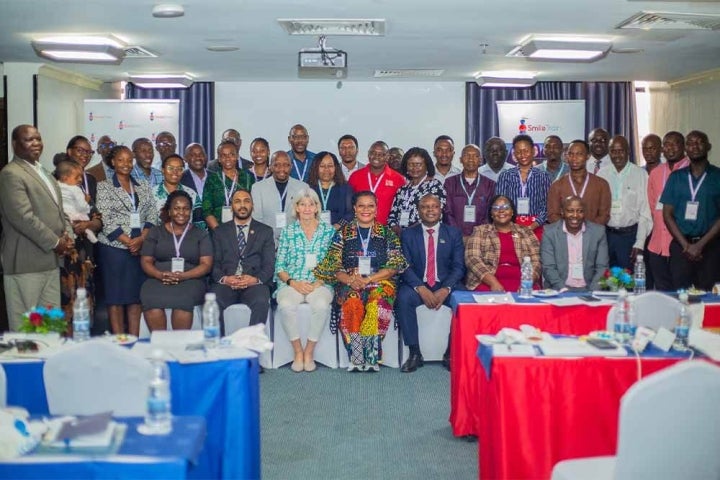
Our recent Partner Forums in Ethiopia and Tanzania in June and July, respectively, powerfully demonstrated the potential and necessity of Smile Train’s unique, sustainable “teach a person to fish” model of training local health workers to build cleft care capacity in their own communities.
Both forums brought diverse groups together to share their knowledge and experiences in cleft treatment. In Tanzania, 40 participants from medical associations; regional umbrella groups like the College of Surgeons of Eastern, Southern and Central Africa (COSESCA) and the College of Anaesthesiologists of Eastern, Central and Southern Africa (CANECSA); and regional Smile Train partner clinics attended.
The program encouraged the broad adoption of non-surgical comprehensive cleft care (CCC). One discussion, moderated by Dr. Frank Sudai, featured a panel of experts, including a plastic surgeon; an ear, nose, and throat doctor; and a nutritionist, to highlight the role of each specialist in the CCC journey.
Attendees called this session a real eye-opener — and when doctors’ eyes open, children’s lives improve. Leaders at many centers previously focused solely on surgery left the panel expressing their readiness to build their own local interdisciplinary teams.
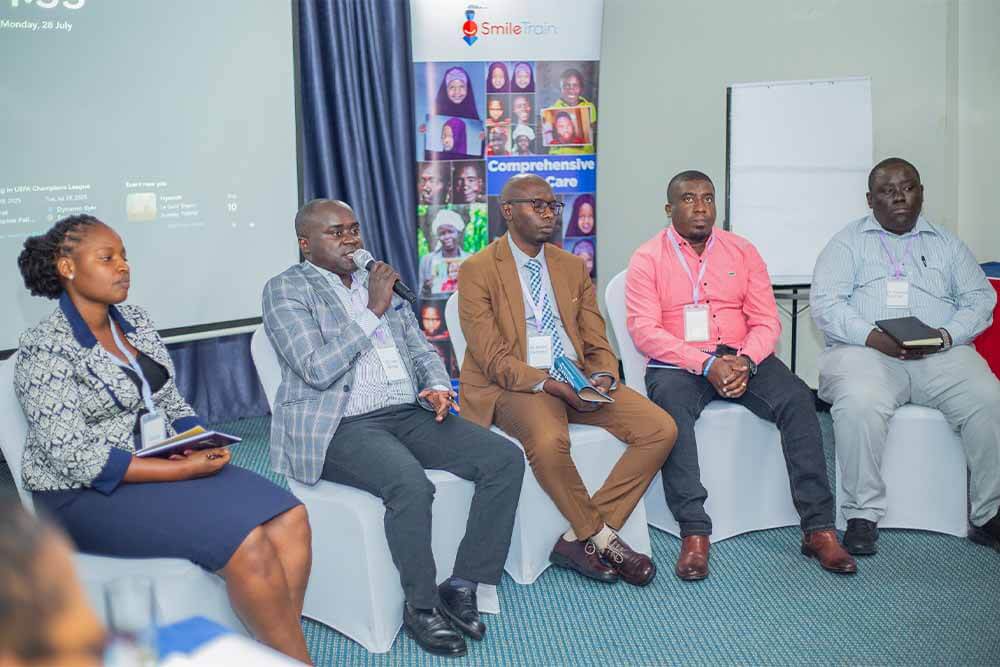
Likewise, the 48 participants at the forum in Ethiopia — including officials from the Federal Ministry of Health and local Smile Train partners — aimed to identify key challenges and strategies for delivering high-quality, comprehensive care in their country.
One multidisciplinary panel focused on Smile Train’s industry-leading safety and quality protocols, with insights from surgeons, anesthesia providers, and nutritionists. Conversations like these not only strengthen the skills of local cleft teams, they build a strong, interconnected network of professionals who can support each other, leading to greater sustainability.
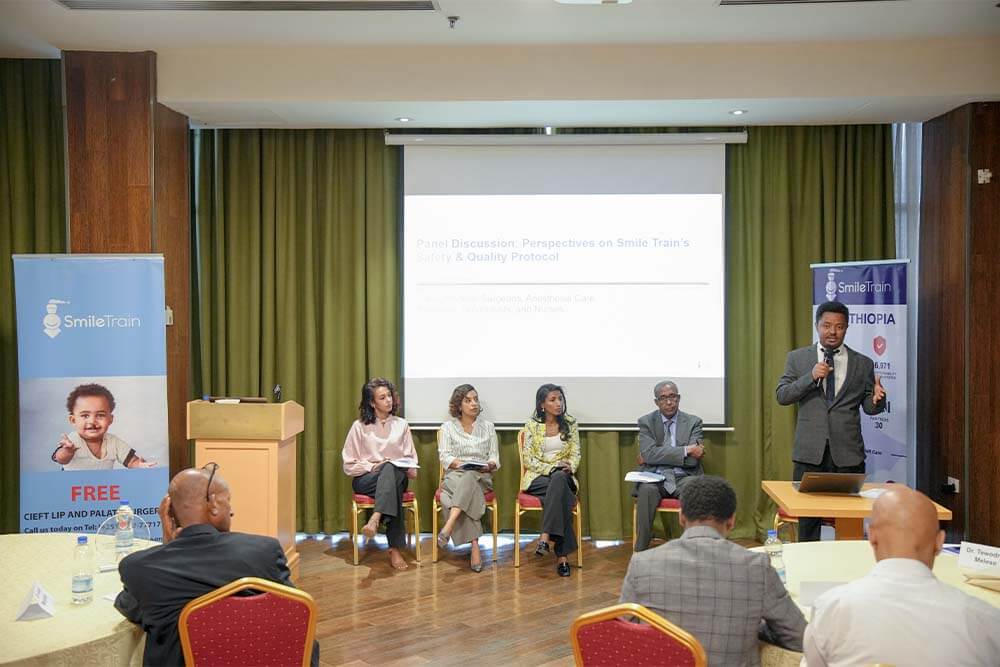
Stakeholder Engagement: A Unified Voice
While both forums were designed to unite all local cleft care specialists as one, each also had its own special focus. In Tanzania, the aim was to enhance cleft care across the country by promoting effective collaboration between Smile Train and our local partners.
Keynote speaker Dr. Mugisha Nkoroko, President of the Tanzania Medical Association, highlighted how Smile Train's initiatives are helping the government address societal issues and called for continued collaboration to ensure every child has access to timely care.
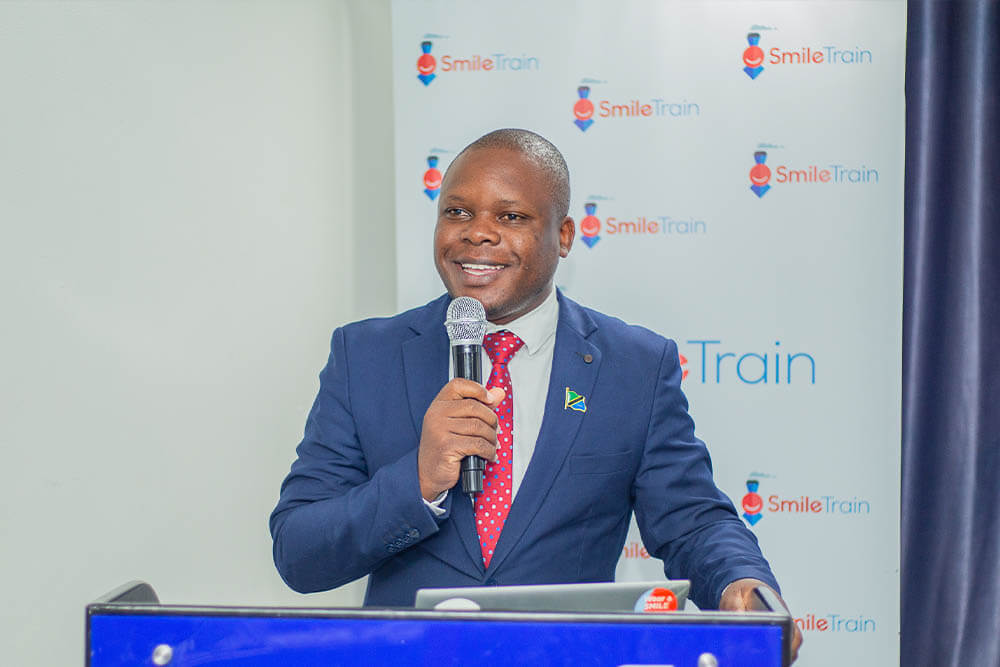
In Ethiopia, the inaugural speaker, Mr. Ermias Mulatu, from the Federal Ministry of Health, set the theme by underscoring his Ministry's prioritization of cleft care and commending Smile Train for our commitment to sustainable capacity building throughout his country. The forum also provided participants a platform to strengthen their roles as ambassadors for Smile Train in Ethiopia.
By engaging government officials and medical associations, we are working to integrate cleft care into national health systems and policies across Africa and around the world, ensuring long-term impact and accessibility for all children in need.
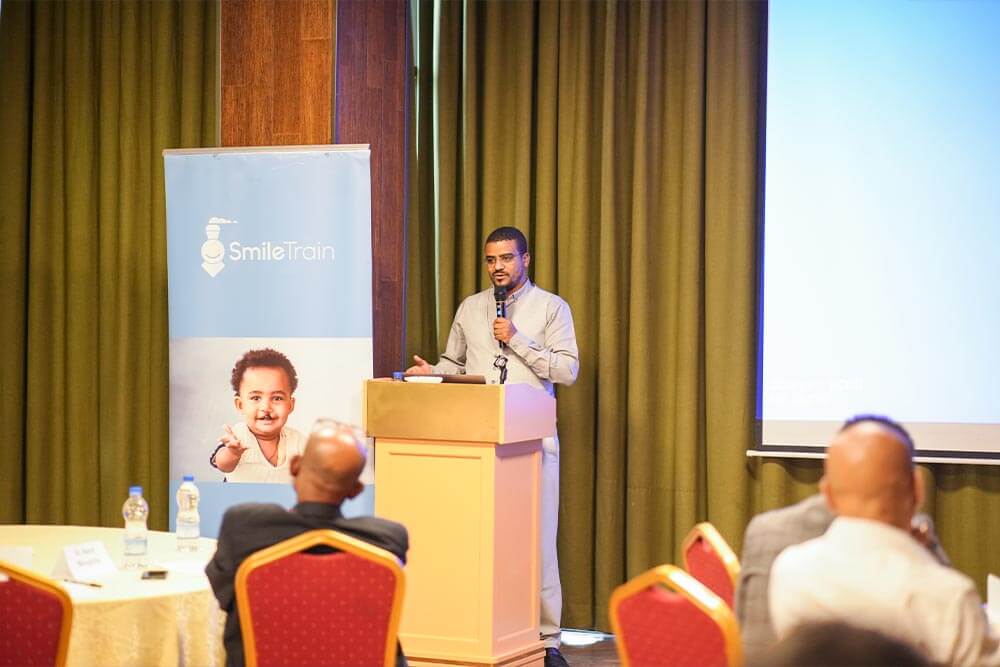
The Patient's Perspective: Driving Advocacy
Both forums also featured powerful testimonials from patients and their families, reminding us that behind every statistic are real lives changed forever. In Tanzania, a mother choked up as she shared her journey raising her daughter with a cleft, and a social worker spoke about overcoming bullying and discrimination. Their stories resonated deeply, not just with the medical professionals but with everyone in the room.
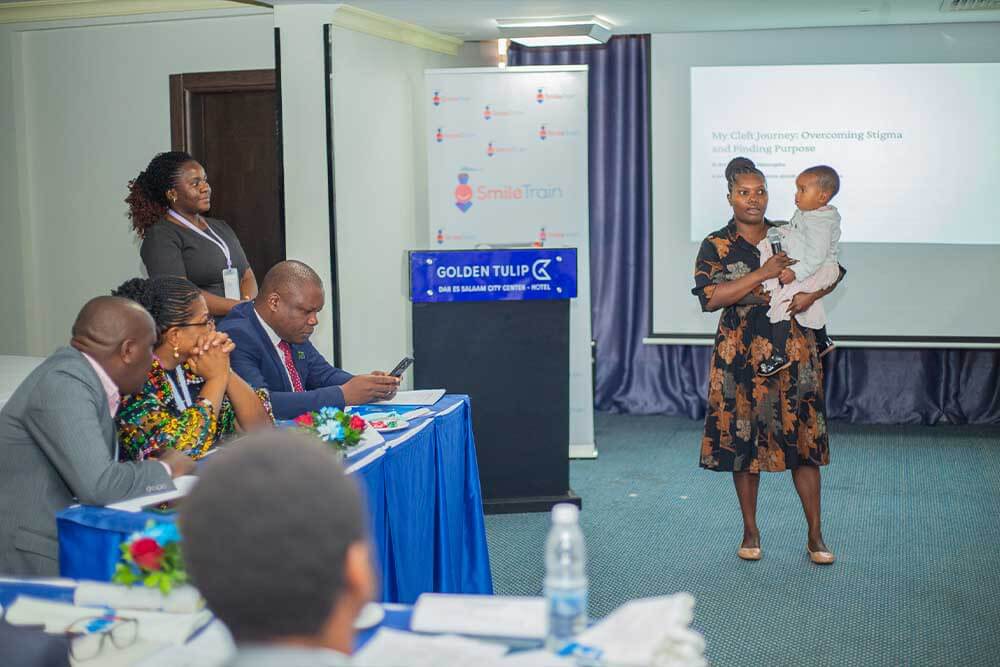
In Ethiopia, Smile Train patients and their families shared how their personal experiences drove them to form a new national association for people affected by clefts.
With just a few tear-soaked words, stories like these often do more to raise awareness of clefts, shatter stigmas, and motivate other health centers to adopt a comprehensive, patient-centered approach to care than the most comprehensive lecture with a PowerPoint ever could.
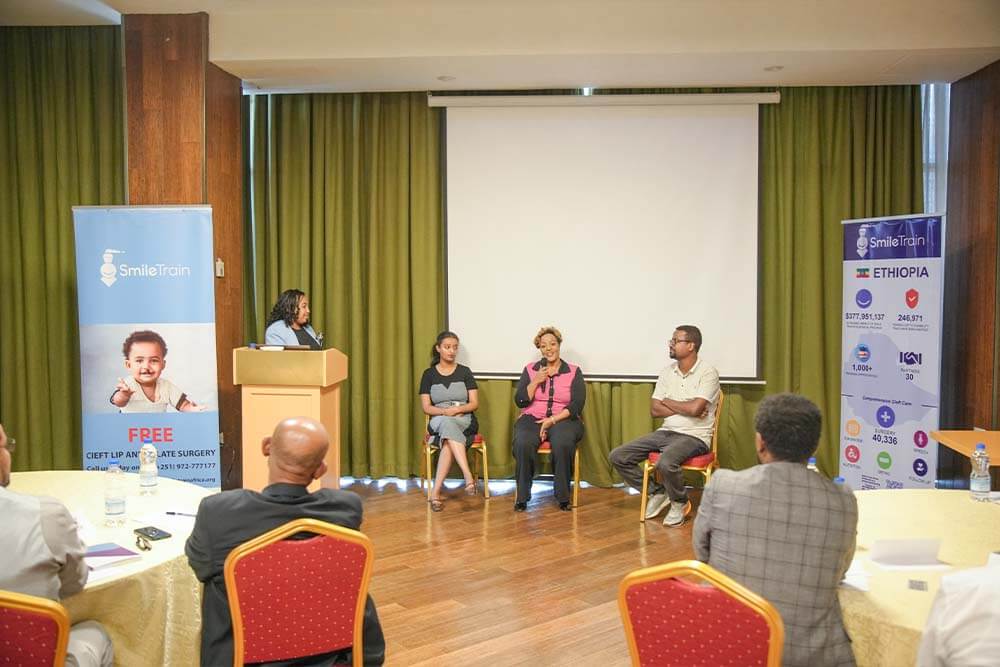
Resolutions and Impact
Though they featured many talks, the forums were ultimately about action. The one in Tanzania led to the establishment of a research working group and a resolution to increase the activity of the partner WhatsApp group.
This shows a commitment to ongoing collaboration and data-driven improvements. Dr. Adelida Mghase, a plastic surgeon, noted that the forum motivated her to strengthen teamwork among her staff and adopt best practices. She came away determined to establish a national cleft registry for better research and advocacy. Similarly, Dr. Nuru Seif left inspired to start a comprehensive cleft care team at his hospital.
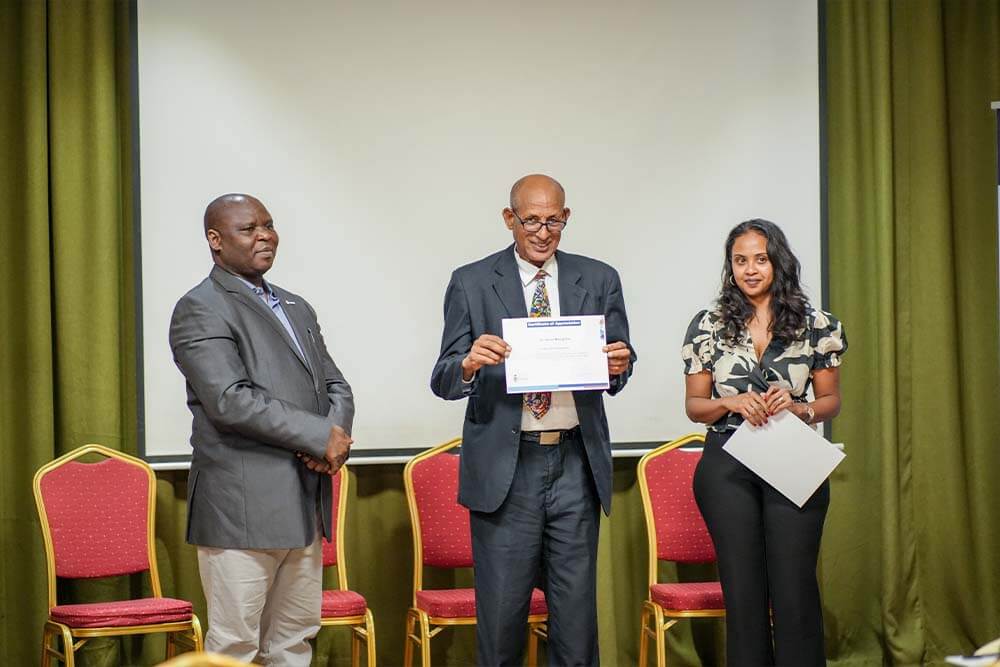
By fostering local partnerships like these these, Smile Train is not just supporting surgeries; we're building a sustainable ecosystem of cleft care that is led by local professionals, supported by regional collaboration, and driven by the voices of those it serves.
